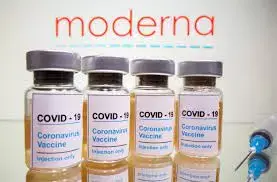- Home
- Medical news & Guidelines
- Anesthesiology
- Cardiology and CTVS
- Critical Care
- Dentistry
- Dermatology
- Diabetes and Endocrinology
- ENT
- Gastroenterology
- Medicine
- Nephrology
- Neurology
- Obstretics-Gynaecology
- Oncology
- Ophthalmology
- Orthopaedics
- Pediatrics-Neonatology
- Psychiatry
- Pulmonology
- Radiology
- Surgery
- Urology
- Laboratory Medicine
- Diet
- Nursing
- Paramedical
- Physiotherapy
- Health news
- Fact Check
- Bone Health Fact Check
- Brain Health Fact Check
- Cancer Related Fact Check
- Child Care Fact Check
- Dental and oral health fact check
- Diabetes and metabolic health fact check
- Diet and Nutrition Fact Check
- Eye and ENT Care Fact Check
- Fitness fact check
- Gut health fact check
- Heart health fact check
- Kidney health fact check
- Medical education fact check
- Men's health fact check
- Respiratory fact check
- Skin and hair care fact check
- Vaccine and Immunization fact check
- Women's health fact check
- AYUSH
- State News
- Andaman and Nicobar Islands
- Andhra Pradesh
- Arunachal Pradesh
- Assam
- Bihar
- Chandigarh
- Chattisgarh
- Dadra and Nagar Haveli
- Daman and Diu
- Delhi
- Goa
- Gujarat
- Haryana
- Himachal Pradesh
- Jammu & Kashmir
- Jharkhand
- Karnataka
- Kerala
- Ladakh
- Lakshadweep
- Madhya Pradesh
- Maharashtra
- Manipur
- Meghalaya
- Mizoram
- Nagaland
- Odisha
- Puducherry
- Punjab
- Rajasthan
- Sikkim
- Tamil Nadu
- Telangana
- Tripura
- Uttar Pradesh
- Uttrakhand
- West Bengal
- Medical Education
- Industry
Moderna vaccine effective against COVID-19 in adolescents: NEJM study

Although Covid-19 illness is generally milder in children than adults, children can have severe disease leading to hospitalization and there is growing concern about MISC. Child continue to be disproportionately affected by the pandemic due to disease per se and also the psychological effects following school closure.
The mRNA-1273 vaccine( moderna) has received emergency use authorization from the Food and Drug Administration (FDA) in December 2020 for use in adults 18 years of age or older. Kashif et al conducted a phase 2–3 COVE(COVID efficacy) trial to evaluate the use of mRNA-1273 in adolescents between the ages of 12 and 17 years of age and found that there were no serious adverse events following vaccination.
A total of 3732 participants were randomly assigned in a 2:1 ratio to receive two injections of either mRNA1273 vaccine (each injection containing 100 μg, for a total dose of 200 μg;2489 participants) or placebo (saline,1243 participants), 28 days apart. Male and female adolescents between age 12 to 17 years with good general health were enrolled. Primary end point was to assess the safety and reactogenecity of vaccine. Secondary end point was about immunogenicity by comparing antibody titers in phase 2 trial with those of young adult recipients in the efficacy phase 3 trial.
During the study period more than 98% participants received second dose injection. Recipients of mRNA-1273 vaccine were noticed to have more local reactions(94.2% after first injection,93.4% after second injection) than the placebo group(36.8% after first injection,32.6% after second injection). Injection site pain was the most common local side effect in both the groups. Systemic adverse reactions were reported in 68.5% of mRNA-1273 vaccine recipients most common being fatigue, headache and myalgias and were less commonly reported in placebo participants. Solicited local or systemic reactions generally persisted for a mean of approximately 4 days.
Unsolicited adverse events up to 28 days after any injection were more frequent in the mRNA1273 group (20.5%) than in the placebo group (15.9%) ; the most common events in the mRNA-1273 group were injection-site lymphadenopathy and headache. Only one patient had grade 2 anaphylaxis on day 21 after second vaccination dose but was attributed to tree nut allergy and possibility of vaccine adverse event was ruled out.
The mean neutralizing antibody titers in adolescents of phase 2 trial was similar to the titers of adults of phase 3 trial thus proving non-inferiority of immunological response. The vaccine efficacy of mRNA-1273 was 39.2% for asymptomatic infection with an onset of 14 days after the second injection (per-protocol population) and 59.5% with an onset of 14 days after the first injection.
As children and adolescents are asymptomatic carriers, widespread vaccination of this group could further reduce community transmission and enhance herd immunity. The availability of effective vaccines in adolescents is also important to further reduce the reservoir of SARS-CoV-2.
Authors conclude-"it appears that the mRNA-1273 vaccine safely induced levels of antiviral antibodies that should be protective against SARS-CoV-2 infection" .
Source:NEJM
Dr Kamal Kant Kohli-MBBS, DTCD- a chest specialist with more than 30 years of practice and a flair for writing clinical articles, Dr Kamal Kant Kohli joined Medical Dialogues as a Chief Editor of Medical News. Besides writing articles, as an editor, he proofreads and verifies all the medical content published on Medical Dialogues including those coming from journals, studies,medical conferences,guidelines etc. Email: drkohli@medicaldialogues.in. Contact no. 011-43720751


